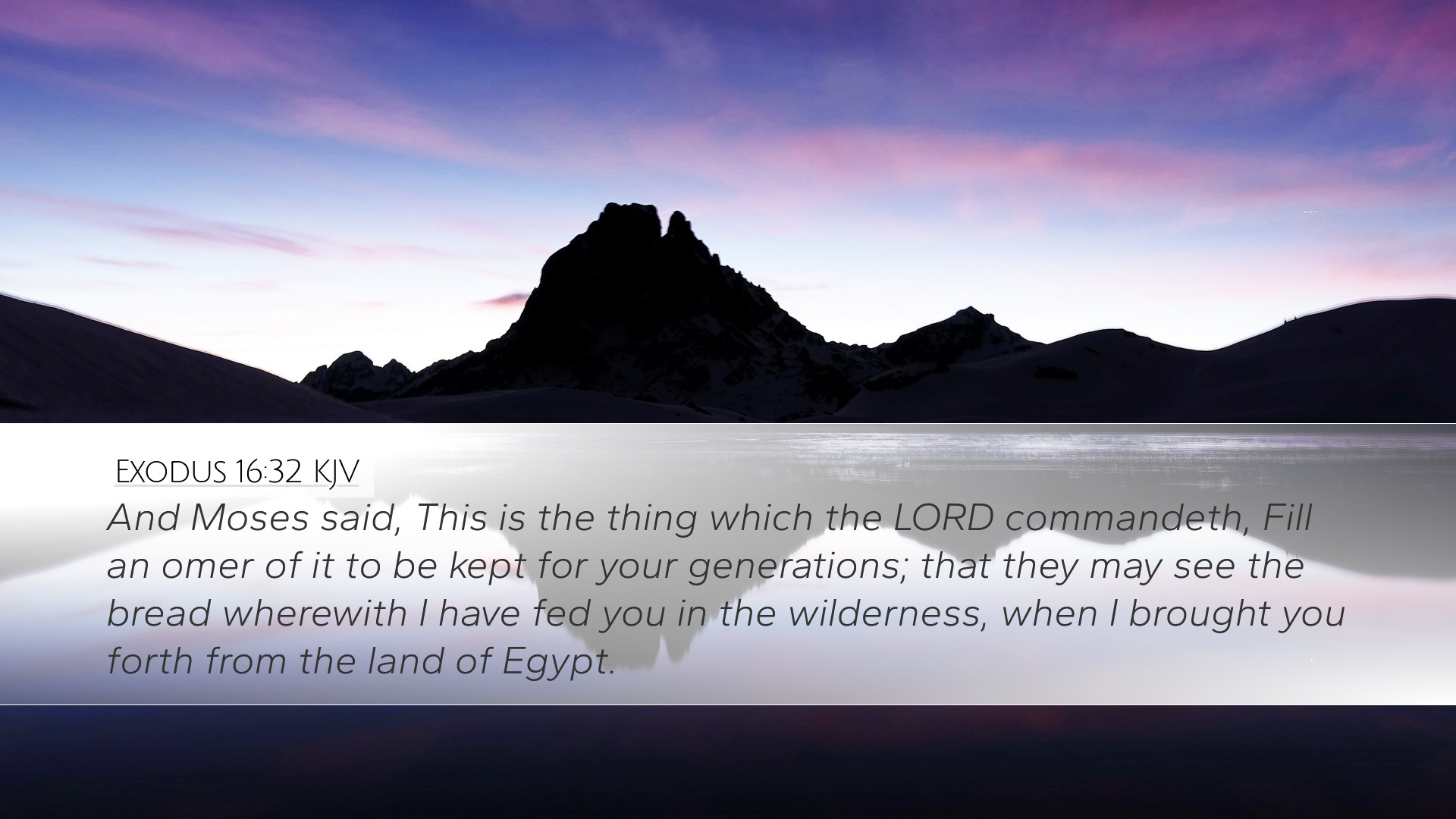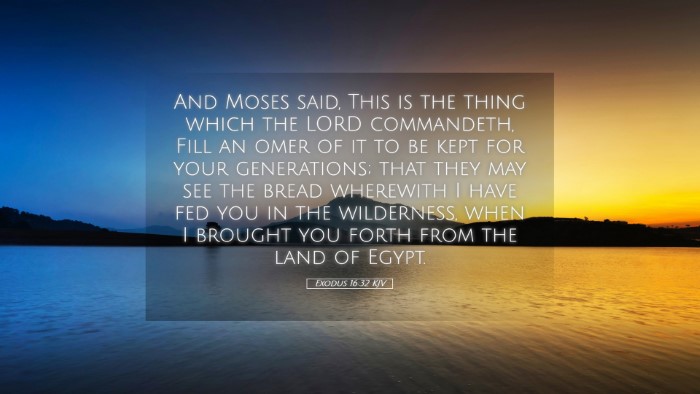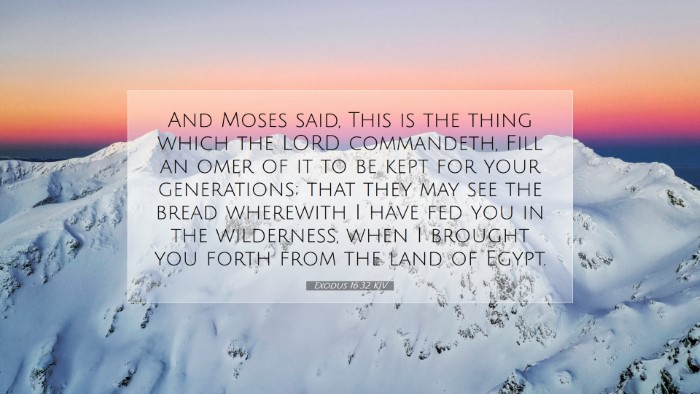Commentary on Exodus 16:32
Exodus 16:32 states, "And Moses said, This is the thing which the Lord commandeth, Fill an omer of it to be kept for your generations; that they may see the bread wherewith I have fed you in the wilderness, when I brought you forth from the land of Egypt."
This passage is significant as it marks a pivotal moment in Israel's history, highlighting God's provision for His people during their journey through the wilderness. The verse serves as a command from God, conveyed through Moses, to keep a portion of manna as a memorial for future generations.
Insights from Matthew Henry
Matthew Henry emphasizes that the manna was not merely physical nourishment but a spiritual lesson. God intended for the Israelite people to remember His providence and care in the wilderness. By keeping an omer of manna, they were to pass down the story of God's miraculous provision to their descendants.
Henry further interprets this act of preservation as a gateway to teaching deeper truths about God’s continual sustenance. He notes that the act of gathering, tasting, and storing the manna should drive the people to gratitude and faith in God's ongoing provisions.
The omer, being a specific measure, also symbolized the sufficiency of God's provision; each person was to gather according to need, thereby reinforcing the principle of contentment and trust in God's daily grace.
Insights from Albert Barnes
Albert Barnes provides an analytical perspective on the command issued by Moses. He notes that this command was significant not just for its immediate context but for its historical relevance. Barnes asserts that God intended this practice to create a lasting legacy—a tangible reminder of divine provision.
Barnes elaborates on the theological implications of this memorialization. By preserving the manna, the Israelites would constantly remember the miraculous nature of their sustenance during their wanderings, which contrasted starkly with the abundance they had in Egypt. This memory would serve as a source of encouragement and a lesson in reliance upon God.
Furthermore, Barnes highlights the communal aspect of this command; the omer was to be kept for generations, fostering a collective memory among the people of Israel and instilling a sense of identity rooted in God’s faithfulness.
Insights from Adam Clarke
Adam Clarke delves into the linguistic and cultural nuances of this passage. He points out the significance of the term "omer," which is derived from a Hebrew root meaning to bind or to measure. Clarke suggests that this act of measuring signifies God's precise and intentional provision, indicating that He caters specifically to the needs of His people.
Clarke also raises the point that this action underscores a key aspect of faith—namely, the need to remember and recount God's past faithfulness as a means of fortifying present trust. He suggests that the Israelites' act of keeping the omer of manna was an act of faith that would remind them to rely on God for their daily needs.
Additionally, Clarke notes that this practice points to the coming of Christ, who refers to Himself as the "bread of life." The observance of the manna serves as a foreshadowing of the ultimate provision God would offer through Jesus, emphasizing continuity in God's redemptive history.
Theological Implications
The insistence on preserving the manna holds profound theological implications. It reflects God's enduring covenant relationship with His people, demonstrating that He is actively engaged in their lives. This concept of memorializing God's provision is mirrored throughout Scripture, guiding believers to recognize His hand in their own lives.
- Memory and Identity: The act of remembrance serves to forge an identity rooted in God’s faithfulness. As the Israelites remember God's past provision, they solidify their identity as His chosen people.
- Trust and Faith: Storing the manna fosters a culture of trust among the community, reinforcing faith in God's ongoing sustenance—a key theme throughout the Hebrew Scriptures.
- Spiritual Nourishment: Miriam’s act of storing manna signifies the spiritual nourishment that believers draw from recounting God's deeds, much like the early church breaking bread in remembrance of Christ.
Conclusion
Exodus 16:32 is a rich text that invites believers, scholars, and church leaders to reflect on the nature of God's provision—both physically and spiritually. The insights gleaned from the works of Matthew Henry, Albert Barnes, and Adam Clarke reveal layers of meaning within this simple instruction to store manna.
As pastors and theologians interpret this passage, they must consider the contemporary application of preserving and recounting God's faithfulness amidst modern challenges. Believers today are called to cultivate a culture of remembrance that honors God's past actions while strengthening faith for the future.


